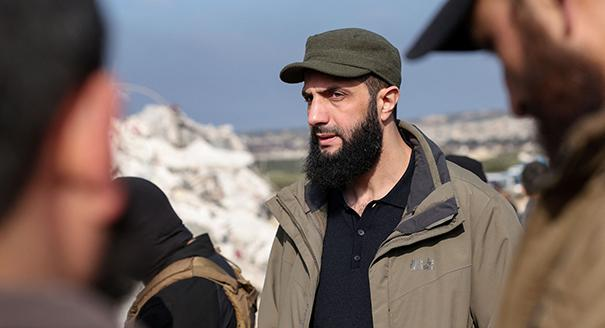Türkiye’s president has just won reelection, but events in northern Syria may prove more complicated than expected.
The general elections in Türkiye are now over, which is likely to provide more clarity with respect to how Ankara will deal with the situation in Syria in the coming months. While some have suggested that the reelection of Turkish President Recep Tayyip Erdoğan may mean he will try to maintain a status quo in his foreign policy, one thing that is likely to change is Türkiye’s relationship with nonstate actors in northern Syria.
A reason for this is the somewhat bewildering foreign policy reversals in which Türkiye has engaged in the past two decades. The Turkish approach has undergone repeated evolutions, from its “Zero Problems with the Neighbors” policy to active involvement, starting in 2011, in supporting the Arab uprisings, notably in Syria, with which Ankara previously had excellent relations. Additionally, what many attributed to Neo-Ottomanism—Türkiye’s economic, cultural, and political expansion into former Ottoman lands—has been replaced today with a more opportunistic and pragmatic foreign policy. In recent months, Erdoğan’s administration has sought to normalize relations with Egypt, Syria, Saudi Arabia, and the United Arab Emirates after years of antagonism. This trend will probably continue, in Syria specifically. But Syria is also where the Turkish president’s difficulties are likely to increase.
The reason for this is that Erdoğan may well find himself caught between the mood of the Turkish electorate and that of the Syrian population hostile to the Assad regime in areas of northern Syria not controlled by Damascus. The fact that Erdoğan had to go through two rounds of voting to be reelected suggested that many Turkish voters sought a change of policy toward Syria, especially in light of the large Syrian refugee population in Türkiye. Therefore, it is unlikely that Erdoğan will reverse efforts to normalize with Syria, an attitude that will be reinforced by the poor state of the Turkish economy. Moreover, such pragmatism is only enhanced by Ankara’s intentions to pursue its balancing role in the region through its relations with Russia and the United States on the one side, and Iran and Saudi Arabia on the other.
Regarding Syria, any rapprochement with Damascus will force Erdoğan to maneuver carefully between the Assad regime and the Syria opposition. Throughout the past month, both Hay’at Tahrir al-Sham, the former Jabhat al-Nusra, and the Syrian National Army, a coalition of armed opposition groups that is closely aligned with Türkiye, have rejected the Arab League’s normalization of relations with the Assad regime, as they have a Turkish-Syrian dialogue. Hay’at Tahrir al-Sham’s leader, Abou Mohammed al-Jolani, has suggested that the military approach is the only viable option to solve the Syrian conflict. The SNA leadership, in turn, has gone so far as to call the normalization process “criminal” for the Syrian opposition and people. The opposition in Idlib Governorate and other regions of Syria that have a Turkish presence is concerned by Türkiye’s rapprochement with Assad, as Ankara has long supported them in their fight.
Yet the repercussions of this anxiety go beyond that, and may affect who ultimately controls Idlib. The situation in Syria’s northern governorates is critical as tensions have risen between the Syrian National Army and Hay’at Tahrir al-Sham for leadership of the anti-Assad opposition in Idlib. Nonstate actors have become major players in the Syrian conflict. Countries, such as Türkiye and Iran, have armed and supported forces on the ground, who, in turn, have constructed their respective identities and ideological beliefs.
For example, in the case of Hay’at Tahrir al-Sham, many have remarked that Jolani has sought to portray himself as a flexible leader, not a jihadi extremist, despite his organization’s antecedents as a branch of Al-Qaeda. His aim appears to be to affirm that Hay’at Tahrir al-Sham can govern Idlib, while also projecting the image of a leader who is a real player in the Syrian conflict and someone frequentable for Western states.
Concurrently, there have been heightened strains within the Syrian National Army. Due to constant fragmentation, the force has become unreliable and weak in the face of Hay’at Tahrir al-Sham, or even the Kurdish-dominated Syrian Democratic Forces. Hay’at Tahrir al-Sham has exploited this disarray in the ranks of the Syrian National Army by imposing its will and administrative structure on the people of Idlib. As such, any normalization process between Ankara and Damascus will have to address these nonstate actors, whose presence is an obstacle to Syria’s territorial integrity.
This situation has presented an opportunity for Jolani to rally support for his own group and launch attacks against all those who oppose him, in an attempt to take control of the region and become a major interlocutor in any future dialogue over the Syrian conflict. From Ankara’s perspective, there is something positive in the fact that many of those in Idlib—local notables, tribal leaders, and the population at large—reject Jolani and Hay’at Tahrir al-Sham, seeing them at best as a lesser evil when compared to the Assad regime. This reaction will help create balance in the north, as opponents of Hay’at Tahrir al-Sham have called for the opposition to unite around a common agenda of implementing Security Council Resolution 2254, which excludes organizations such as Hay’at Tahrir al-Sham and the Islamic State group from any political process and calls for a transition in Syria under the supervision of the United Nations.
This situation may create complications for Erdoğan if he continues to normalize with Damascus. Türkiye would not only have to deal with the Assad regime but also with Hay’at Tahrir al-Sham and its own presumptive allies inside Syria.
 Eurasia Press & News
Eurasia Press & News



